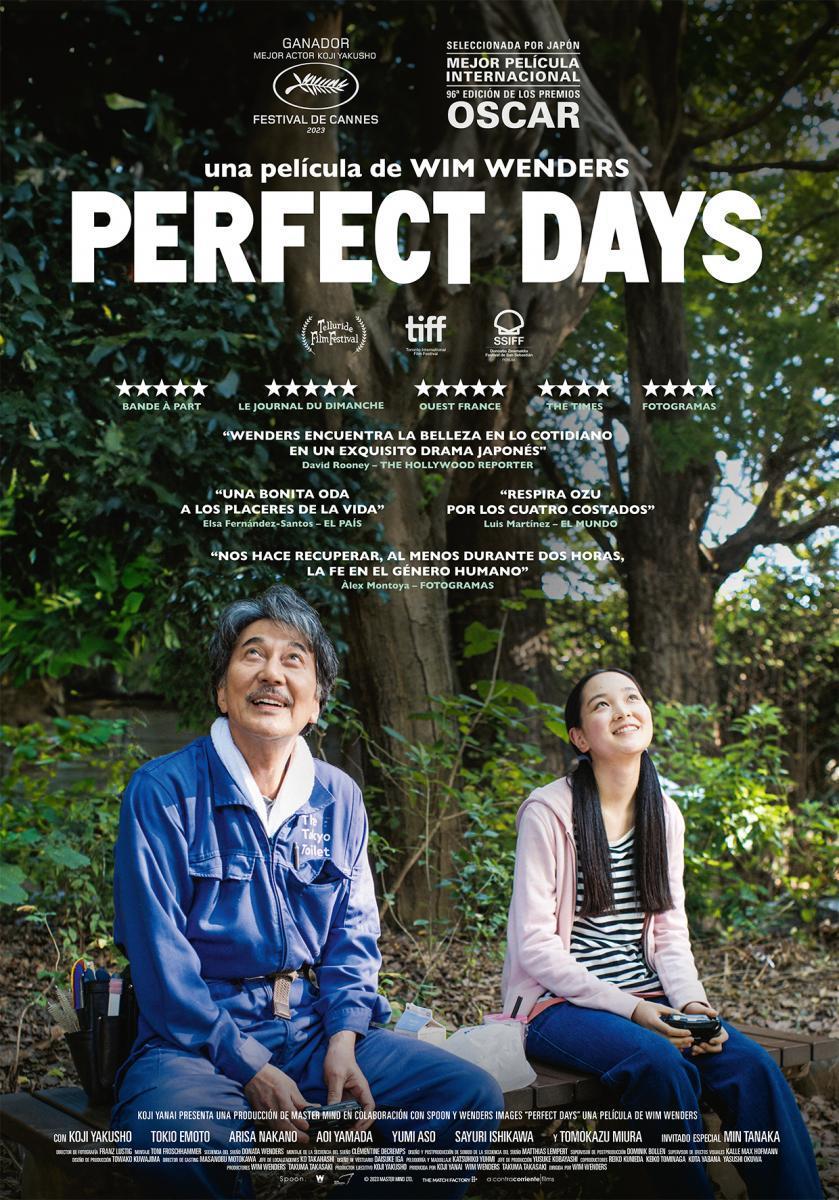Movies
The art of simplicity
‘Perfect Days’ portrays the introspective life of Hirayama, a humble man in the bustling city of Tokyo.
Timila Maharjan
‘Perfect Days’ is a movie about an ordinary man, Hirayama, played by Koji Yakuso, who cleans Tokyo toilets for a living. The film shows his daily activities, which are peaceful and mundane. Although single and living alone, he is content with his life.
Hirayama follows the same daily routine: he wakes up at the same time each day to the sound of an old lady sweeping near his home, brushes his teeth, trims his moustache, waters his plants, gets ready, and drinks his usual can of coffee. On his way to work, he listens to his cassette collection in his minivan, with Tokyo Skytree looming in the distance. He works diligently in various public toilets around Tokyo, eats the same sandwich and milk for lunch, rides his bicycle after work, and regularly visits the same restaurants, bars, and public baths.
On weekends, he follows a distinct routine, starting with waking up a bit later than on weekdays. He cleans his room, takes his dirty clothes to the laundry, and brings his camera to get photos printed, which he then arranges in boxes. He visits a bookshop to buy a new book and heads to the same bar, where he reads the book and enjoys the same meal. He frequents familiar places where everyone knows and respects him.
In the film, he is greeted warmly at the restaurant with a smile, a wave, and a glass of ice water. The owner personally serves his meal, saying, “For your hard work,” At the bookshop, he exchanges a few words with the lady shopkeeper about the book he's purchasing. At the bar, he enjoys lighthearted moments with the other customers and the owner. These simple activities, though basic, are enjoyable and fulfilling.
The film features minimal dialogue, reflecting Hirayama's tranquil nature, as he primarily communicates through expressions and gestures. He only speaks when necessary and is never shown talking to himself at home. As mentioned in the film, he lives in a world that is quite different from others. He still listens to cassettes in his minivan on the way to work, and uses an old film camera to take pictures of trees, which he regularly gets printed and stores in a box. In the bustling city of Tokyo, Hirayama leads a simple life, with little reliance on modern technology or conveniences, creating a sense of refreshment and peace. He’s a man who enjoys what he enjoys and feels no need to keep up with the rest of the world.
Although Hirayama doesn't speak much, his expressions convey a lot. He is a keen observer who smiles often, giving the impression of a kind, shy, and loving person. He lives alone and initially appears to be a loner, but when his teenage niece arrives at his house after running away from home, he distances himself from his family. While he usually seems happy and content, there’s a pivotal moment when his sister visits to take her daughter back home. For the first time, we see him cry, revealing a sadness that suggests his way of life may be a choice made after enduring a prolonged trauma. Subtle clues in his interactions with family, and strangers, and his shaken reaction to an unexpected event hint at a deeper emotional story beneath his calm exterior.
As a viewer, I appreciated the natural sound in the movie, which truly immerses the audience in the environment. For instance, in the opening scene, where Hirayama is getting ready for work, we can hear crows cawing, the soft sound of a broom sweeping, the stillness of the early morning, the fresh air, and the sound of water as he waters his plants. Though the film has minimal background music, these natural sounds add incredible depth to the scenes. The film also showcases various types of toilets that Hirayama cleans, each with unique designs and architecture, using different technologies. This attention to detail leaves the audience wishing for such thoughtfully designed toilets in their own city.

The film also offers vague glimpses of Hirayama’s dreams in black and white, often featuring the canopy of trees and moments from his day. These dream sequences leave the audience guessing at their deeper meaning. The movie also includes a touch of comedy, which is particularly engaging as it’s conveyed without words. The subtle humour, expressed through gestures and expressions, adds excitement and fun to the scenes. For instance, when Hirayama’s colleague Takashi asks him to sell his tape collection for a good sum of money, Hirayama shows no interest, highlighting his reluctance to embrace modern ways of living. He prefers to keep his life as it is. In a way, ‘Perfect Days’ explores what we lose when everything becomes digitised.
Trees hold deep significance in this movie. Hirayama has a profound love for trees, often seen capturing the canopy of trees during his breaks in the park. These tree canopies also appear in his dreams, and he keeps an extensive collection of tree photos, organized in boxes with dates, stored in his cupboard. The towering presence of the Skytree, the world’s tallest tower, frequently appears in the film as a contrast. In one scene, Hirayama buys a book titled “Tree” at a bookshop, further emphasising his connection to nature. Trees are also physically present around the public toilets that Hirayama cleans. The Japanese word “Komorebi,” which describes the shimmering of light and shadows created by leaves swaying in the wind, captures the fleeting beauty of such moments. This word and its meaning are highlighted at the end of the movie, making the trees and their canopies even more significant to Hirayama’s life. The film portrays a deep connection with nature, suggesting the importance of pausing, taking time, and living a slow-paced life while appreciating the small, seemingly insignificant details.
Amidst the bustle of everyday life, this movie offers a sense of peace and comfort to the audience. Hirayama's life is simple yet undeniably appealing. Koji Yakusho’s brilliant acting, combined with Wim Wenders' exceptional direction, beautifully captures the joys and inner peace found in solitude. The film conveys so much with minimal dialogue, relying on subtle gestures and keen observation to communicate its message. With little character exposition, it invites the audience to draw their own conclusions and find their own meanings in the story.
Perfect Days
Director: Wim Wenders
Starring: Koji Yakuso, Tokio Emoto, Arisa Nakano, Aoi Yamada
Duration: 203 minutes
Language: Japanese
Available: Hulu, Disney Plus, Prime Video or Apple TV
Year: 2023




 15.87°C Kathmandu
15.87°C Kathmandu











